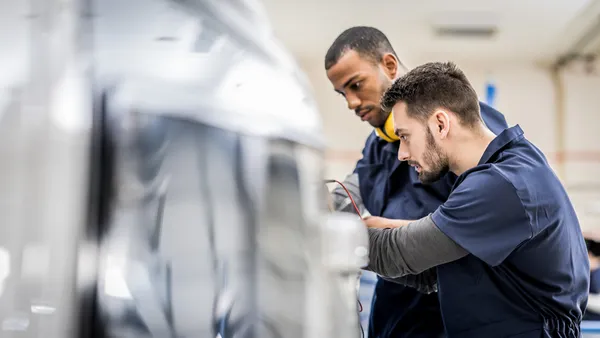Dive Brief:
- Gen Zers are confident about their tech knowledge and their readiness to shake up things, but they’re unsure about their readiness to join the workforce, according to the findings in a Dell Technologies survey of 12,000 secondary and post-secondary students.
- Generation Z students in the survey said they want to work with cutting-edge technology and share their knowledge, according to Dell. Generally, members of the generation care about data security, but aren't sure how to address it, and they want more for their work than just money. A majority (75%) said they expect to learn on the job from co-workers or others instead of online.
- Employers can respond to Gen Z's concerns by offering soft skills training as well as internship opportunities and other on-the-job programs to help build their confidence, Dell said. Adopting a "tech-first approach" can also attract Gen Zers, who can step in to help train a multigenerational workforce in how to work with the tech, appealing to the generation's desire for a connected workplace.
Dive Insight:
HR professionals are now tasked with managing workplaces that may contain as many as five generations under one (or multiple) roofs. From benefits to recruiting to harassment protocols, there are a ton of generational differences and expectations to be managed.
The difficulty in managing Gen Z specifically may be balancing its members technical expertise with soft skills that take time to develop. Managers reportedly fear that independent, confident Gen Zers will be more difficult to manage, train, communicate with and get along with than other generations. L&D pros may struggle to find common ground with Gen Zers, too. Although both groups agreed in a LinkedIn report that the skills needed by today's workforce are different from those required of past generations, the two disagreed about the importance of soft skills, what motivates Gen Z in training and how much tech training Gen Z requires.
But other Gen Z studies indicate that members of the generation favor personal interaction, which could make them natural team players if given room to develop their skills. Regardless, HR pros must be careful not to make assumptions about members of Gen Z while also understanding the viewpoints they may bring to the table.












